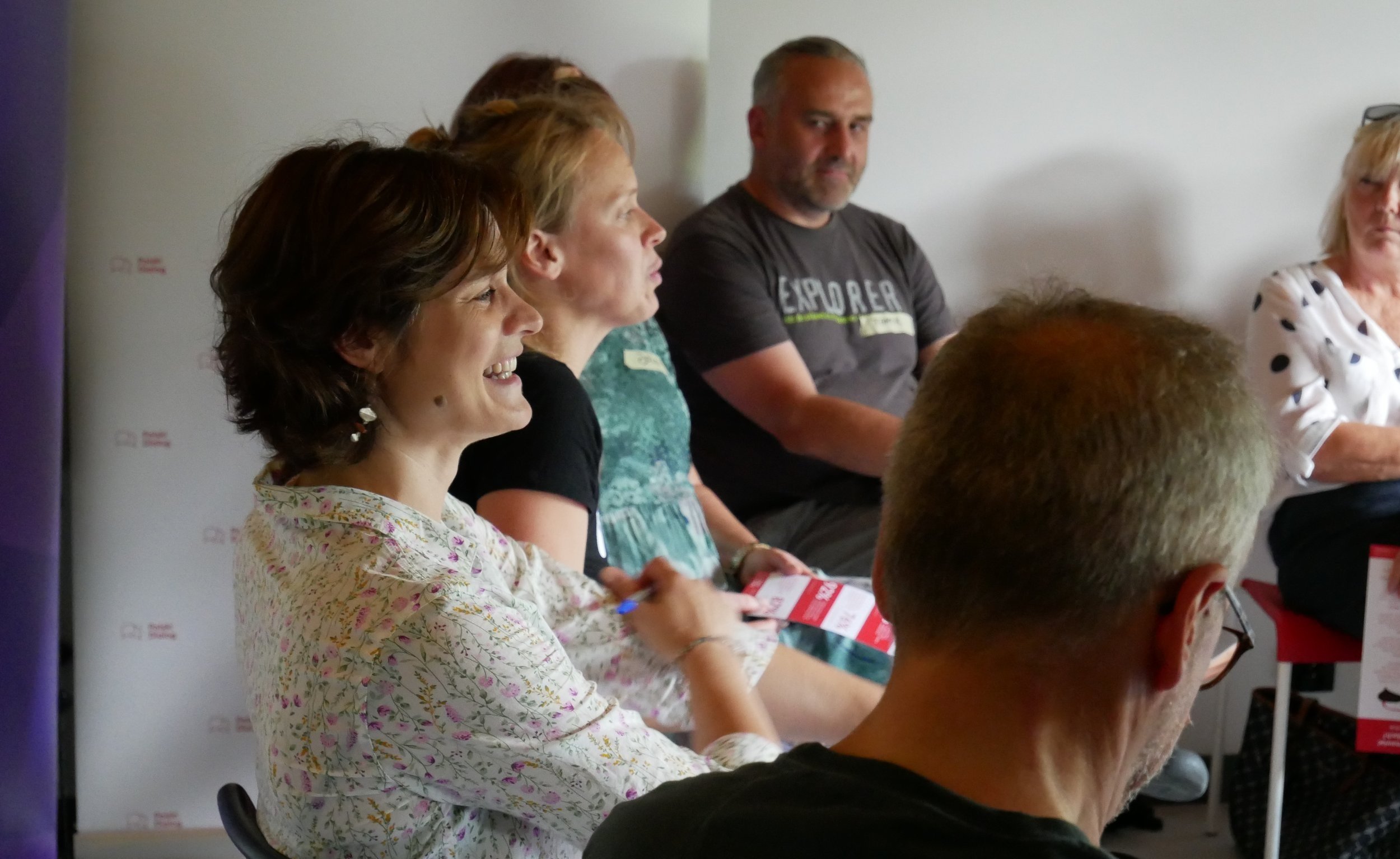Community: The enemy of polarity
Community can be difficult to grasp as an intellectual concept, but it becomes more tangible when seen as a perceived quality of our social lives. A sense of community with other people or belonging to a group is a counterforce to the widespread sense of division or conflict in today’s Western societies. We can thus view de-polarization as a community-building exercise.
Our concept of community is very pragmatic and down-to-earth. We view it not as a utopian state of social unity or political peace, but rather as a viable process wherein people coexist while respecting their social diversity and accepting political compromise. Such a process obviously depends on stable and efficient democratic institutions, but equally so on reliable and valuable bonds between people. This invisible network, the sum of bonds people share beyond their private lives, is what we would call a community. It is the fabric of a living democracy.
Community is always there and often flourishing. It is what underpins our extended families, local neighborhoods, circles of friends, workplace teams, football fans or even entire nations. But what specifically binds us together within a particular community can vary. In most communities, it’s a shared identity rooted in common ancestry (extended families), residency in the same area (local neighborhoods), employment under the same organization (workplace teams), support for the same sports team (football fans) or belonging to the same territory (nations).
A diversity-based community
There is also a different type of community—one based on diversity rather than identity. This kind of community underpins liberal democratic societies, which profess equality of citizens regardless of their individual identities, whether racial, regional, ethnic, religious, or national. It is a reluctant sense of togetherness that acknowledges that we are different, often radically diverse, but dependent on each other for better or for worse. Some societies struggle with this kind of community, while other have integrated it into their political cultures.
A diversity-based community is the bedrock of liberal democracy–and a target for authoritarian forces. These forces use polarization to weaken it while bolstering identity-based communities they rely on for political support. Hence, narratives that artificially pit religion, tradition, or nationality against human rights, gender equality, or climate protection. This manipulation works because of the pervasive fear permeating Western societies, fostering a retreat into identity-based communities and creating an illusion of security in the face of cascading crises.
Written by Wawrzyniec Smoczyński
Photograph by Jacek Dyląg





